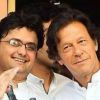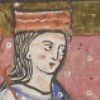13 Islamic History Books That Shape Understanding Today
Recommended by Vali Nasr, Barham Salih, and Fareed Zakaria for authoritative Islamic History insights
Create a Islamic History course with AI
Generate a personalized AI-powered course, tailored to your goals and topics of interest
What if the stories you think you know about Islamic history are only part of a much richer picture? Islamic history spans continents, cultures, and centuries, weaving together narratives that continue to influence global politics and societies today. Understanding these complexities is more crucial than ever as you navigate current events shaped by these historic roots.
Leaders like Vali Nasr, a professor at Johns Hopkins-SAIS and former State Department advisor, found that books like Black Wave reshaped their grasp of Middle Eastern sectarian rivalries. Similarly, Barham Salih, President of Iraq, calls it a "must read" for its deep insight into regional conflicts. These endorsements reflect how expert perspectives illuminate the forces behind historical and modern Islamic dynamics.
While these carefully curated books provide proven frameworks for exploring Islamic history, you might find even more value by creating a personalized Islamic History book tailored to your background and interests. This approach builds on expert insights to address your unique learning goals and deepen your understanding.
“A well-researched and highly readable primer on the rivalry between Shias and Sunnis shaping today’s Middle East. Kim Ghattas masterfully traces the origins of sectarianism in the explosive rise of Islamic fundamentalism in 1979 and the destructive Saudi-Iranian rivalry that followed.” (from Amazon)
Drawing from her extensive experience as an Emmy-award winning journalist covering Middle Eastern affairs, Kim Ghattas examines the intense rivalry between Saudi Arabia and Iran that reshaped the region after 1979. You’ll uncover how this geopolitical conflict extended far beyond politics into culture, religion, and collective memory, influencing events from the fatwa against Salman Rushdie to the rise of ISIS. The book introduces vivid personal stories, such as the Pakistani anchor resisting dictatorship and the tragic murder of journalist Jamal Khashoggi, providing a human perspective to complex historical forces. If you seek to understand the deep roots of sectarianism and regional tensions today, this book offers detailed historical context and analysis that few others provide.
What if everything you knew about Islamic Spain was wrong? Brian A. Catlos challenges traditional narratives by diving into original sources that reveal a nuanced society where Muslims, Christians, and Jews collaborated and conflicted in complex ways. Instead of a simple tale of tolerance or clash, you explore how religion often served as rhetoric rather than root cause amid political struggles. You learn to appreciate the cultural achievements of al-Andalus alongside the realities of its conflicts, gaining insights into medieval interfaith dynamics that resonate today. This book suits you if you seek depth beyond stereotypes and want to understand the forces shaping Western civilization’s history.
This tailored book explores the rich tapestry of Islamic history, offering a deep dive into its diverse cultures, pivotal events, and influential figures. It examines the evolution of Islamic civilization through personalized lenses, focusing on your unique interests and background to illuminate complex historical narratives. By addressing your specific goals, this guide weaves together detailed accounts of conquests, religious movements, and cultural transformations that shaped the Islamic world. With a personalized focus, it reveals connections between regions and eras, helping you grasp the intricate interplay of politics, faith, and society. This approach creates an engaging learning experience that aligns with your curiosity and expertise, making the vast scope of Islamic history accessible and relevant.
Unlike many Islamic history books that narrowly focus on political events, Rudolph T. Ware's work explores the lived experience of Qur'an schooling in West Africa, revealing how these institutions shaped Muslim identity and resistance over a millennium. You gain insight into how education here isn't just intellectual but embodied, with students internalizing the Qur'an through ritual and practice, a concept Ware unpacks with rich ethnographic detail from Senegal, Gambia, and Mauritania. This approach opens a window into both historical and contemporary Islamic knowledge transmission, offering a nuanced perspective for anyone interested in religious education, African history, or Islamic studies. While deeply academic, the book rewards readers curious about how faith and culture intertwine in shaping communities.
Recommended by Fareed Zakaria
Author of Ten Lessons for a Post-Pandemic World
“As the Middle East is collapsing all around us, if you wanted to know where it all began and when, read this great book by a great Oxford historian.” (from Amazon)
Eugene Rogan, a professor of modern Middle Eastern history at Oxford and director of the Middle East Centre, delivers a vivid account of the First World War’s impact on the Middle East. You’ll explore how the Ottoman Empire’s dramatic battles, such as Gallipoli and Gaza, influenced regional dynamics and set the stage for the modern Arab world’s ongoing conflicts. Key chapters unpack the political intrigue and military campaigns that reshaped the region, giving you a nuanced understanding beyond conventional Western Front narratives. This book suits anyone aiming to grasp the complex historical roots behind today’s Middle Eastern landscape rather than a casual overview.
Recommended by Tom Holland
Historian and author
“[A] splendid new history of the Arab conquests.... Hoyland...has performed an invaluable service. His book will surely serve as the definitive account of the Arab conquests for many years to come.” (from Amazon)
Robert G. Hoyland, a historian with a deep focus on ancient warfare, challenges traditional narratives by integrating early Muslim sources with contemporaneous accounts from Byzantium, Persia, and neighboring peoples. You gain a detailed understanding of how Arabian tribes forged a vast empire in just over a century, examining not only military conquests but also the complex cultural and political transformations that shaped the Islamic world. This book meticulously traces the rise of a unique Arabian identity amidst two dominant empires and the key roles of surrounding groups like the Khazars and Turks. If you're interested in the formation of the Islamic Empire beyond conventional stories, this book offers rich, nuanced insights into that pivotal era.
This tailored book explores Islamic history through a focused 30-day journey designed to deepen your understanding efficiently and effectively. It covers key events, figures, and cultural shifts, enabling you to grasp the complexities of Islamic civilization with daily lessons that match your background and interests. By tailoring the content to your specific goals, this book bridges the gap between broad expert knowledge and your personal learning needs. It examines the evolution of Islamic societies, political transformations, and religious developments, inviting you to engage with the subject matter in a way that fits your pace and prior experience. This personalized approach ensures you focus on areas most relevant to your curiosity and objectives, making your study both meaningful and manageable.
Recommended by Faisal Javed Khan
PTI Senator and Committee Chairman
“"The Sealed Nectar" Such an amazing book on the life of Prophet Muhammad (S.A.W) Also available in Urdu Translation titled "Ar-Raheeq Al-Makhtum"” (from X)
What started as a quest to authentically portray the life of Prophet Muhammad (S) became Safi-ur-Rahman al-Mubarkpuri's detailed chronicle that blends religious insight with historical narrative. You learn not only the timeline of the Prophet’s life but also the deeper spiritual and social contexts that shaped early Islam, supported by references to scripture and traditions. The book walks you through episodes like the Treaty of Hudaybiyyah and the Battle of Badr, illustrating the Prophet’s leadership and character. If you seek a grounded understanding of Islamic origins with scholarly rigor, this book offers a thorough perspective, though it’s best suited for serious students rather than casual readers.
When Cole M. Bunzel set out to chart the history of Wahhābism, he drew on deep expertise in Middle Eastern history and Islamic theology to illuminate how this movement evolved from 18th-century Najd into a major force shaping modern Islamic militancy. You’ll gain insight into the theological roots tied to Ibn Taymiyya and see how Wahhābism’s militant doctrines influenced groups like al-Qāʿida and ISIS. Chapters detailing the political alliance with the Āl Suʿūd dynasty reveal the complex interplay between religion and state power. This book suits anyone seeking a thorough understanding of a controversial movement pivotal to contemporary Islamic history.
Recommended by Francis Robinson
Professor of South Asian History, University of London
“This is a wonderfully balanced treatment of Islam in Pakistan, which throughout respects nuance and complexity.” (from Amazon)
Drawing from Muhammad Qasim Zaman's deep expertise as a Princeton professor, this book unpacks the complex evolution of Islam in Pakistan over the last century and a half. You gain a layered understanding of how Islamic modernism rose and waned amid colonial and post-colonial pressures, exploring debates among scholars, Sufis, and political actors that shaped Pakistan’s unique Islamic identity. For example, it delves into the role of traditionalist scholars and Islamist movements, providing you with a nuanced framework to grasp how Islam functions in Pakistan’s public and political spheres. This is especially useful if you're looking to comprehend the historical roots behind contemporary Islamic debates in South Asia.
Recommended by Paul Graham
Co-Founder of Y Combinator
Richard A. Fletcher challenges the conventional view of Moorish Spain by tracing its thousand-year Islamic presence from the initial Berber-Arab conquest to its lasting cultural impact on Western civilization. You gain a nuanced understanding of how Islamic science and culture, often overlooked, influenced medieval Europe during its Dark Ages, as well as the complex political dynamics within the Iberian peninsula. Fletcher’s narrative blends history with cultural insight, making chapters on waves of conquest and the transmission of Greek knowledge particularly illuminating. This book suits you if you seek a concise yet vivid exploration of Islamic influence in European history beyond typical military and religious accounts.
Recommended by Deborah Tor
University of Notre Dame historian
“An elegantly and entertainingly written, painstakingly researched work that fills a glaring lacuna in the scholarly literature. Peacock’s book is, quite simply, the first ever to cover the entire Seljuq period, and the only available comprehensive overview of this critical era. It will no doubt become a standard work in the field.” (from Amazon)
A.C.S. Peacock's decades of academic research and teaching in Middle Eastern history culminate in this detailed exploration of the Seljuk Empire, a pivotal yet understudied era. You’ll gain a chronological understanding of the empire’s rise and fall alongside insights into its political, religious, and social institutions, such as the complex relationship between nomadic tribes and state power, and the significant role of women in Seljuk courts. The book also examines the Seljuks’ interactions with non-Muslim neighbors, offering a nuanced view of 11th- and 12th-century Islamic governance. If your interest lies in early Islamic empires or the formation of Middle Eastern history, this book offers a richly layered narrative that balances scholarly rigor with readability.
Recommended by Faisal Javed Khan
PTI Senator and Heritage Committee Chairman
“"The Sealed Nectar" Such an amazing book on the life of Prophet Muhammad (S.A.W) Also available in Urdu Translation titled "Ar-Raheeq Al-Makhtum"” (from X)
Unlike most Islamic history books that present fragmented accounts, Sheikh Safi-ur-Rahman al-Mubarkpuri offers a detailed and coherent narrative of the Prophet Muhammad's life, blending historical records with deep religious insights. You’ll explore not only chronological events but also the character and teachings that shaped early Islam, with chapters illuminating key moments like the Treaty of Hudaybiyyah and the Farewell Pilgrimage. This book suits anyone seeking a thorough understanding of the Prophet’s life beyond surface-level biographies, from students to scholars. It’s especially helpful if you want a grounded, respectful portrayal rather than a purely academic or devotional text.
Recommended by Aydogan Vatandas
Editor-in-Chief, Middle East expert
“What I am reading now. Great book on such a complicated topic..” (from X)
When Lesley Hazleton, a psychologist and seasoned Middle East journalist, wrote this book, she brought a rare blend of narrative skill and deep historical insight to a complex topic. You’ll gain a nuanced understanding of the early Islamic succession crisis that sparked the Sunni-Shia divide, learning about key figures like Aisha and Ali and the political and religious tensions that still echo today. Hazleton’s ability to weave politics, culture, and faith into a gripping story offers clarity on a conflict often reduced to headlines. If you want to grasp this pivotal moment shaping modern Islamic history, this book offers a focused and engaging exploration without oversimplification.
Recommended by Publisher's Weekly
“Shines light on a little-known example of the diversity, vitality, and worldwide scope of Islamic knowledge and Muslim communities.” (from Amazon)
What if everything you knew about Islamic revival movements was reconsidered through the lens of the Tijaniyya order? Zachary Valentine Wright, an associate professor at Northwestern University in Qatar specializing in Islamic studies, explores this influential Sufi order’s eighteenth-century origins and its global intellectual network. You’ll gain insights into how Ahmad al-Tijani and his followers emphasized personal verification in religious learning, human actualization, and the realization of Muslim identity. The book digs into the order's spread from North Africa to the Middle East and beyond, making it essential reading if you want to understand the complex dynamics shaping Islamic thought and communities in the early modern period and today.
Conclusion
Across these 13 books, you’ll find themes of empire-building, religious evolution, and cultural exchange that have shaped the Islamic world’s past and present. Whether it’s the political upheavals in The Fall of the Ottomans or the spiritual insights in Realizing Islam, these works offer diverse lenses to grasp Islamic history’s complexity.
If you're wrestling with understanding modern Middle Eastern politics, start with Black Wave and The Fall of the Ottomans for grounded context. For cultural and educational insights, The Walking Qur'an and Kingdoms of Faith History Islamic Spain provide rich narratives. Combining these readings will give you a well-rounded foundation.
Alternatively, you can create a personalized Islamic History book to bridge the gap between general principles and your specific situation. These books can help you accelerate your learning journey by connecting historical scholarship with your unique interests.
Frequently Asked Questions
I'm overwhelmed by choice – which book should I start with?
Start with Black Wave for a modern perspective on Middle Eastern rivalries or In God's Path for early Islamic empire history. Both are highly recommended by scholars for accessible yet detailed narratives.
Are these books too advanced for someone new to Islamic History?
Not at all. Many titles like The Sealed Nectar and After the Prophet offer clear storytelling suited for newcomers wanting to understand foundational events and figures in Islamic history.
What's the best order to read these books?
Begin with biographies like Ar-Raheeq Al-Makhtum to get historical context, then explore broader topics such as empire histories and regional studies to build depth progressively.
Should I start with the newest book or a classic?
Both have value. Newer books like Wahhābism provide fresh insights into contemporary movements, while classics like Moorish Spain offer timeless perspectives on Islamic cultural influence.
Can I skip around or do I need to read them cover to cover?
You can definitely skip around. The books cover distinct eras and themes, so choose based on your specific interests—be it politics, culture, or religious history.
How can a personalized Islamic History book complement these expert recommendations?
Personalized books build on expert works by tailoring insights to your background and goals, making complex history more relevant and actionable. Explore this option here.
Help fellow book lovers discover great books, share this curated list with others!
Related Articles You May Like
Explore more curated book recommendations



















